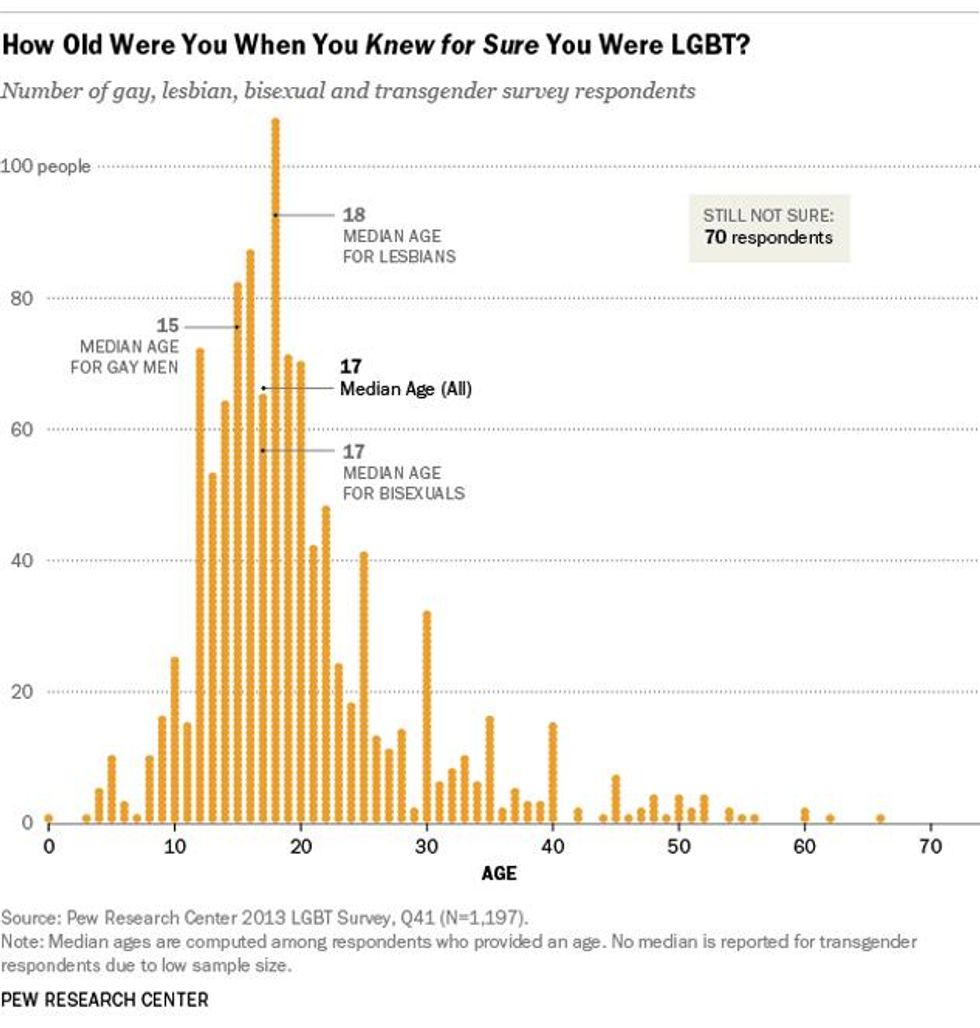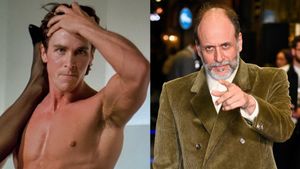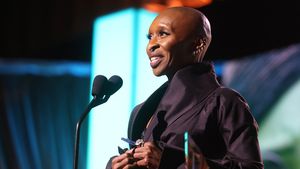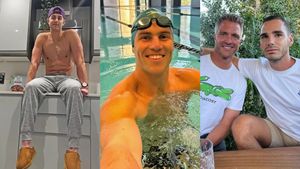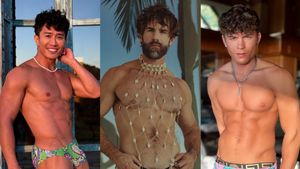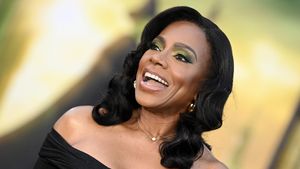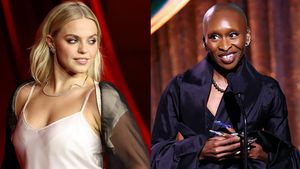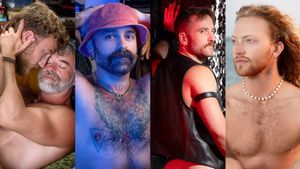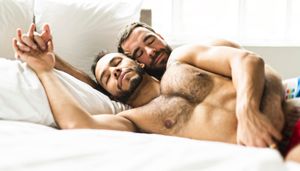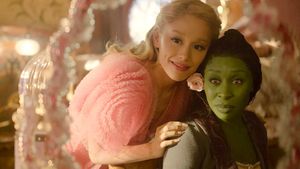 A study released today by the Pew Research Center illustrates both how far LGBT Americans have come and the difficulties they've experienced.
A study released today by the Pew Research Center illustrates both how far LGBT Americans have come and the difficulties they've experienced.
In Pew's "A Survey of LGBT Americans," an overwhelming percentage of respondents -- 92% -- "say society has become more accepting of them in the past decade and an equal number expect it to grow even more accepting in the decade ahead," according to the center's summary of the report.
"They attribute the changes to a variety of factors, from people knowing and interacting with someone who is LGBT, to advocacy on their behalf by high-profile public figures, to LGBT adults raising families," the summary continues.
However, many respondents tell of experiencing bias and stigma. Thirty-nine percent say they have been rejected by a friend or close relative because of their sexual orientation or gender identity; 58% say they've been the target of anti-LGBT slurs or jokes; 30% report they've been physically attacked or threatened; 29% have felt unwelcome in a place of worship; 23% have received poor service from a business; and 21% have been subject to unfair treatment by an employer.
Pew also surveyed respondents on various aspects of their coming-out experience, including when they first thought they were something other than straight and when they first told a friend or family member (see graphics).
What's more, Pew found that the LGBT population differs from the general public in ways other than sexual orientation or gender identity. They are "more liberal, more Democratic, less religious, less happy with their lives, and more satisfied with the general direction of the country," the research group reports. "On average, they are younger than the general public. Their family incomes are lower, which may be related to their relative youth and the smaller size of their households. They are also more likely to perceive discrimination not just against themselves but also against other groups with a legacy of discrimination."
The study was based primarily on a survey of 1,197 self-identified LGBT adults (18 or older) conducted in April. The group consisted of 398 gay men, 277 lesbians, 479 bisexuals, and 43 transgender people. Read more here.


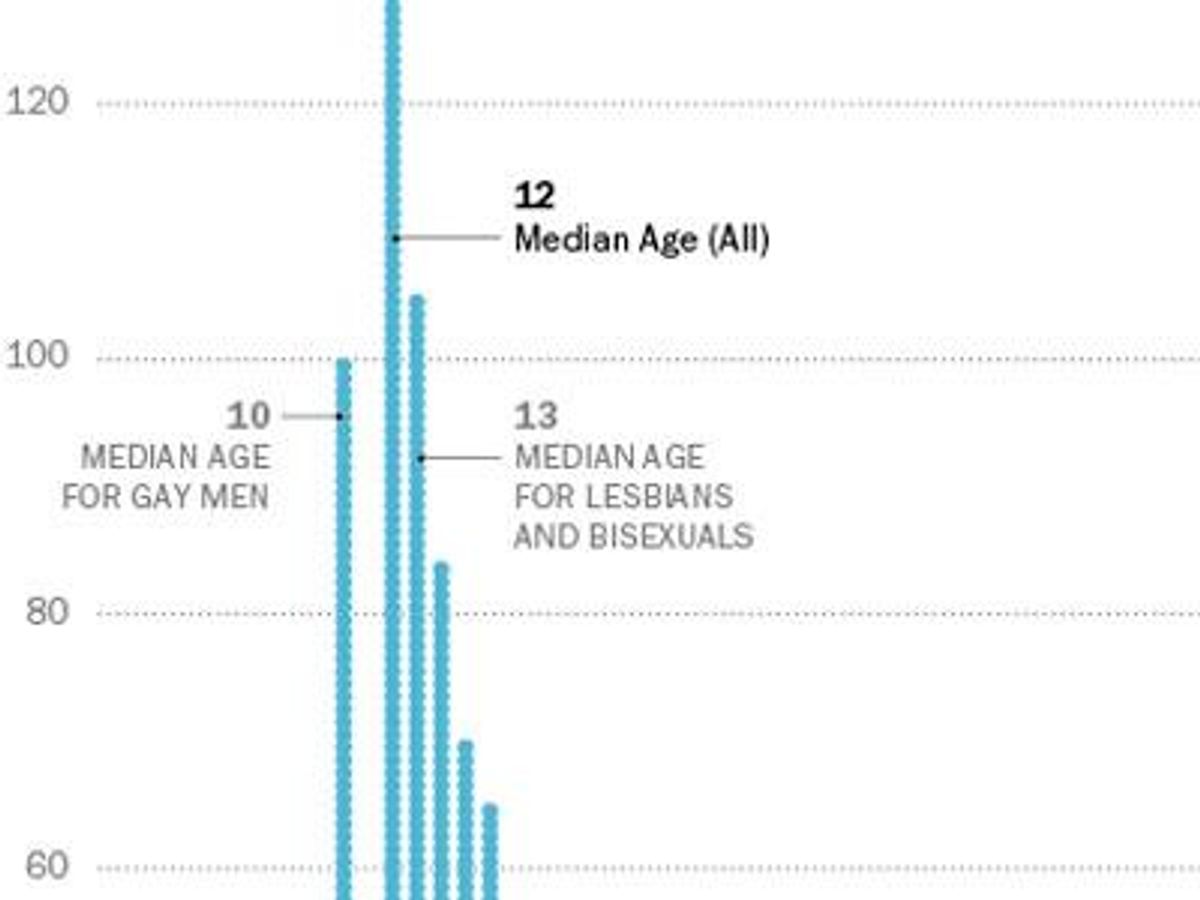

 A study released today by the Pew Research Center illustrates both how far LGBT Americans have come and the difficulties they've experienced.
A study released today by the Pew Research Center illustrates both how far LGBT Americans have come and the difficulties they've experienced.